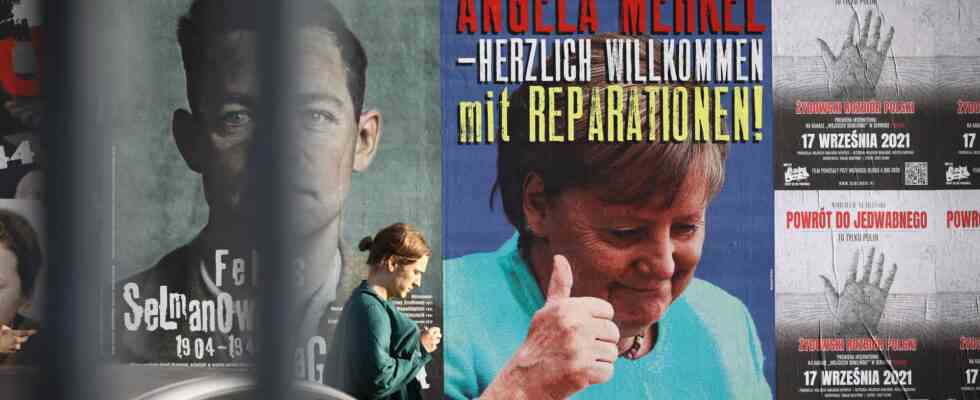Status: 09/01/2022 10:38 a.m
On the anniversary of the German invasion of Poland, the government in Warsaw intends to publish a report quantifying the damage caused by World War II. New claims for reparations to Berlin could also be derived from this.
Polish Prime Minister Mateusz Morawiecki says he read the damage report – and was shocked, as he recently said himself. When meeting German politicians, Morawiecki always dutifully ticked off the subject behind closed doors, as one of his visitors testified. For the head of the ruling PiS party, Jaroslaw Kaczynski, the question of World War II reparations is said to be a matter of greater concern.
Kaczynski has repeatedly raised the question for years, most recently again in early August. This appearance was generally taken as the green light to publish the damage report now after some delay, namely on today’s anniversary of the start of the world war.
Which still doesn’t mean that Poland will then formally demand reparations instead of just threatening to do so, as has been the case up to now. It’s a “long process,” said Arkadiusz Mularczyk, the author of the damage report, MP and head of a former commission on compensation.
In Germany today there is no awareness of what happened during the Second World War, the publication should raise awareness – not only in Germany, but also in the USA, Great Britain and other countries.
A multiple of the national budget
The calculated amount of damage is unclear; there was always talk of a high three-digit billion euro amount. “These are only estimates and calculations, because there is no longer a Republic of Poland like there was in 1939,” says Mularczyk. “The borders are different and only 53 percent of today’s territory of Poland belonged to the republic at that time. But the sums are considerable and exceed our state budget several times over.”
In fact, Poland suffered greatly from the particularly long period of occupation. About six million Poles died, half of them Polish Jews; millions more were abducted to forced labour, mistreated or fell victim to the terror of Stalin, who was Hitler’s ally until 1941, in the Soviet-occupied part of the country. The material losses, such as burned-down districts, stolen or destroyed cultural assets, are hardly manageable.
Means of pressure against Berlin?
Germany made some reparations until the Socialist People’s Republic of Poland waived further reparations in 1953. The official German point of view today is that the question will be closed politically and legally with the agreements made after reunification at the latest. Berlin also refers to voluntary services, such as compensation for forced laborers.
But the discussion might not calm down even in the event of a change of government in Warsaw, as the government-critical journalist Bartosz Wielinski from “Gazeta Wyborcza” predicts: “You have to solve that somehow. Money, a project, a symbol. The topic will remain, so that in the future nobody plays with the stupid card that the Germans owe us quadrillions for the war. That has to be finally solved at the next opportunity.”
But will the current Polish government one day actually send a bill worth billions to Berlin? Observers suspect that it’s more about the calculation of putting pressure on Berlin with the reparations whip – because Germany, as PiS politicians complain again and again, is acting as a “moral teacher”.

